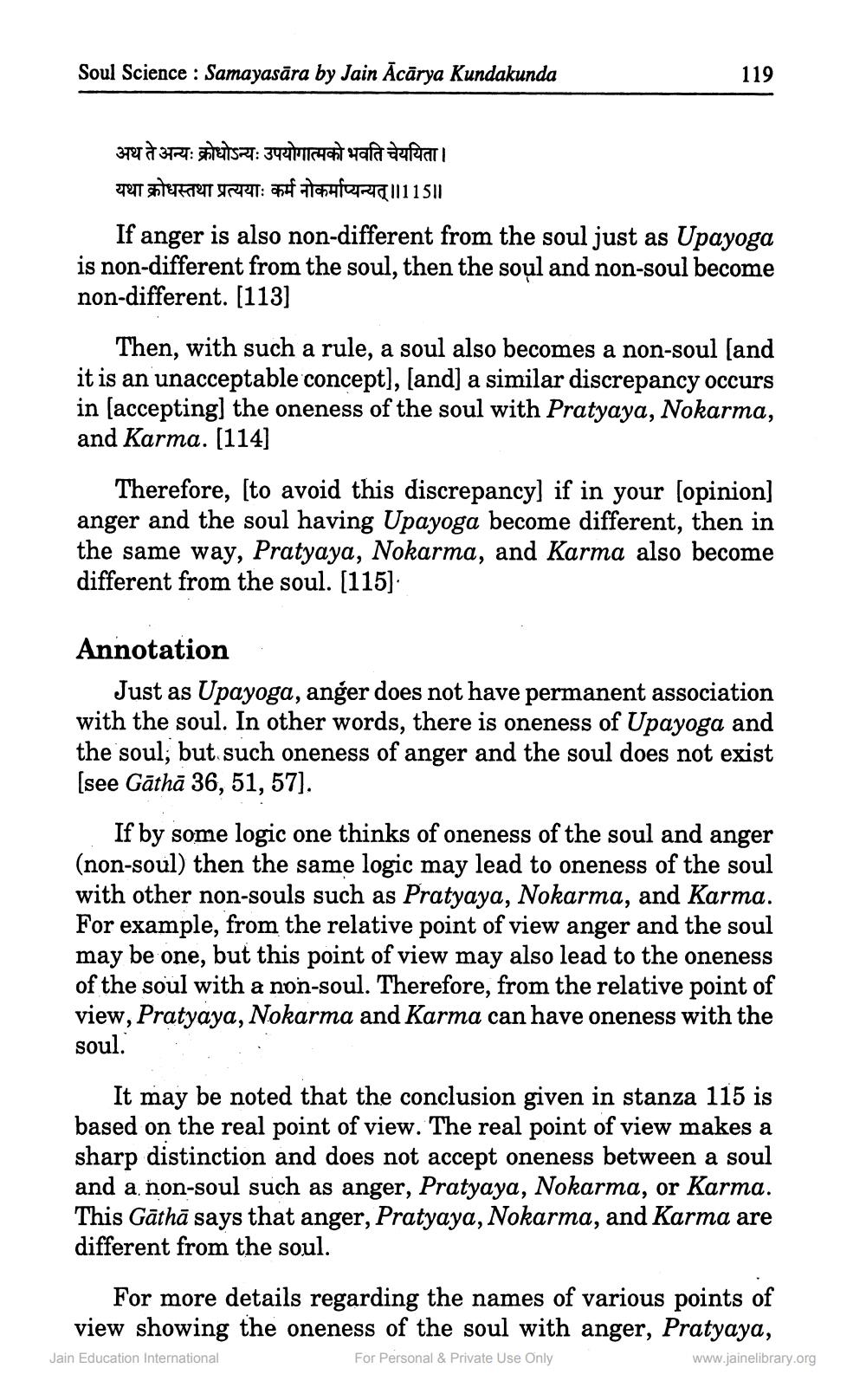________________
Soul Science: Samayasāra by Jain Ācārya Kundakunda
अथ ते अन्यः क्रोधोऽन्यः उपयोगात्मको भवति चेययिता ।
यथा क्रोधस्तथा प्रत्ययाः कर्म नोकर्माप्यन्यत् ||115|
119
If anger is also non-different from the soul just as Upayoga is non-different from the soul, then the soul and non-soul become non-different. [113]
Then, with such a rule, a soul also becomes a non-soul [and it is an unacceptable concept], [and] a similar discrepancy occurs in [accepting] the oneness of the soul with Pratyaya, Nokarma, and Karma. [114]
Therefore, [to avoid this discrepancy] if in your [opinion] anger and the soul having Upayoga become different, then in the same way, Pratyaya, Nokarma, and Karma also become different from the soul. [115]
Annotation
Just as Upayoga, anger does not have permanent association with the soul. In other words, there is oneness of Upayoga and the soul, but such oneness of anger and the soul does not exist [see Gāthā 36, 51, 57].
If by some logic one thinks of oneness of the soul and anger (non-soul) then the same logic may lead to oneness of the soul with other non-souls such as Pratyaya, Nokarma, and Karma. For example, from the relative point of view anger and the soul may be one, but this point of view may also lead to the oneness of the soul with a non-soul. Therefore, from the relative point of view, Pratyaya, Nokarma and Karma can have oneness with the soul.
It may be noted that the conclusion given in stanza 115 is based on the real point of view. The real point of view makes a sharp distinction and does not accept oneness between a soul and a non-soul such as anger, Pratyaya, Nokarma, or Karma. This Gāthā says that anger, Pratyaya, Nokarma, and Karma are different from the soul.
For more details regarding the names of various points of view showing the oneness of the soul with anger, Pratyaya,
Jain Education International
For Personal & Private Use Only
www.jainelibrary.org




